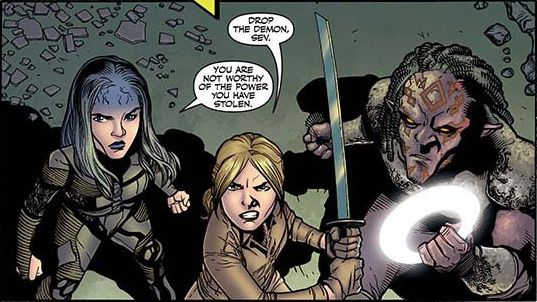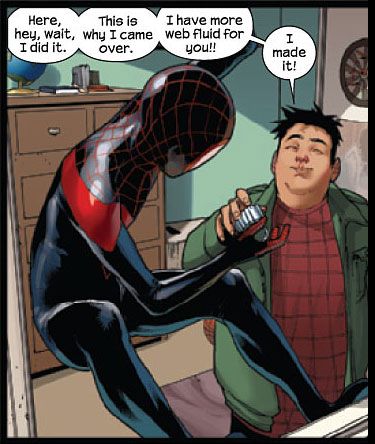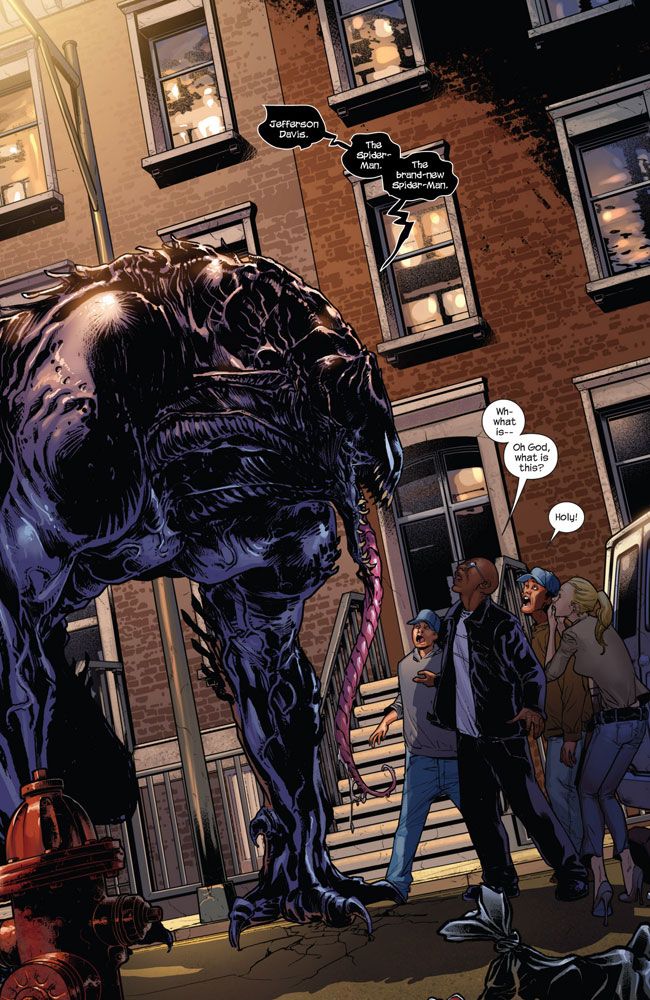Like a lot of adult comic book readers do at some point, I've been taking stock of my reading choices and the type of mainstream, ongoing, monthly comic books which I read. It took me a while to figure out what was bothering me, but I found that I was making a couple of assumptions which, upon closer examination, were wrong.
1. I've been assuming that I read predominantly two types of comic books; fantasy and superhero (apart from the odd foray into horror, bios, and science fiction.)
2. Without thought and with quite some negative judgement about it, I've been thinking of the fantasy genre comic books as "girl" comics, and the superhero ones as "boy" comics (e.g. some weeks are "girl heavy").
These are depressingly reductive ways to look at the comic books I enjoy, and the more I thought about it, the more I saw how wrong I was.
The books I deemed fantasy, like Unwritten, Fables, and all of the Buffy spinoff books which I think of as my "girls" reading (and which seem to be targeted predominantly at a female audience) have their roots in fantasy fiction, this is true. There are fairy tales and mythical stories woven into the roots of these books and no one is wearing colorful spandex or a cape. However, when I start to dissect them each one focuses on people with unusual powers and abilities, people who find that these power separate them from their regular human counterparts, who are burdened with a responsibility to fight for the greater good.
Unwritten's Tommy Taylor is clearly a superhero, whether he wants to be or not, thrown into one chaotic, world-altering scenario after another. His enemies are more like super villains than most of the pseudo criminals who pepper regular superhero comic books, complete with code names and costumes too.
Similarly Buffy is a hero, as are Willow, Angel, Faith and even Spike. Whedon always intended her to serve as a modern myth, a hero of a new type, and while the comic veers into the territory of fantasy and horror, it is ultimately a superhero book, as all all of the spin-off titles associated with it.
Fables is not just another way of looking at ancient fairy tales, but is also about an entire population of super powered individuals. In many ways this is a world of superheroes, trying to function and survive in the "real" world while staying hidden from their ancient enemies, as much as from us.
All of my so-called fantasy books are stories about superheroes of some kind of another, no matter what the setting. Action, violence, and epic struggle are all integral to the stories of these comic books, just as much as the connections and interactions between individuals which made me assume these were something as narrow as a book which would only work for one gender or another.
Similarly, the books which I was pigeonholing as basic superhero stories, "boy" books, are so much richer than this. Fury, Ultimate Spider-Man, Hawkeye, Daredevil, and Powers all have a much broader focus than the superheroes they're named for.
The excellent Fury is all about the youth of Nick Fury. Pre S.H.I.E.L.D., pre Avengers, this is him on covert jungle missions, frustrating sexual trysts, and heart breaking sacrifice. When Ennis writes Fury, we feel his stoic pain as he grits his teeth and gets on with the brutal job at hand. It hardly reads like a superhero comic book, and even less like a war comic book, it's just that rich that it transcends genres.
Ultimate Spider-Man (apart from being an incredible showcase for Sara Pichelli's Spidey acrobatics focuses as much on the emotional aspect of the heroes journey as it does on the fight. I've come to care about this kid, his family, and the city which seems to be continuously pitted against them.
Hawkeye isn't just about a non-powered superhero (which is always an interesting little puzzle to watch), but is just as engagingly about the inhabitants of the building Barton lives in and protects. With more to lose, our protagonist becomes a more sympathetic character. This is a book about life in a neighborhood as much as it is about adventure and risk.
Over the last few months, Daredevil has evolved from revitalized, swashbuckling hero, into a man struggling with his own sanity. By confronting the massive personal changes the character embraced last year, Waid has allowed a necessary depth to emerge from the veneer of happiness he gave Murdock and it makes for richer reading. Far from being a basic superhero story, this is book about mental health, trust, and personal awareness.
Powers is an odd one. The entire thing is about the police who deal with the super powered criminals and overtly all about superheroes. But at it's core it is a workplace drama, focusing on the dynamic between Christian Walker and Deena Pilgrim as a classic, buddy-movie. The bureaucracy they wrestle with in the face of a violent world is an excellent metaphor for the limitations inherent in any professional endeavor. While the powers described in the title are those of superheroes and villains, the real power is in the weighty emotional baggage of the protagonists and their work.
I'm so glad that I was worried about my monthly superhero reading, because in examining my assumptions and expectations I found that the categories I was applying to them are essentially meaningless. The reason I enjoy these particular books so much is because they capture my imagination, on a multitude of different levels. The genre and gender stereotypes which I had applied to them were reductive and restrictive, which means that in the future I can ignore them, recommend better books to my friends, and be more open-minded about my own reading experiments.




